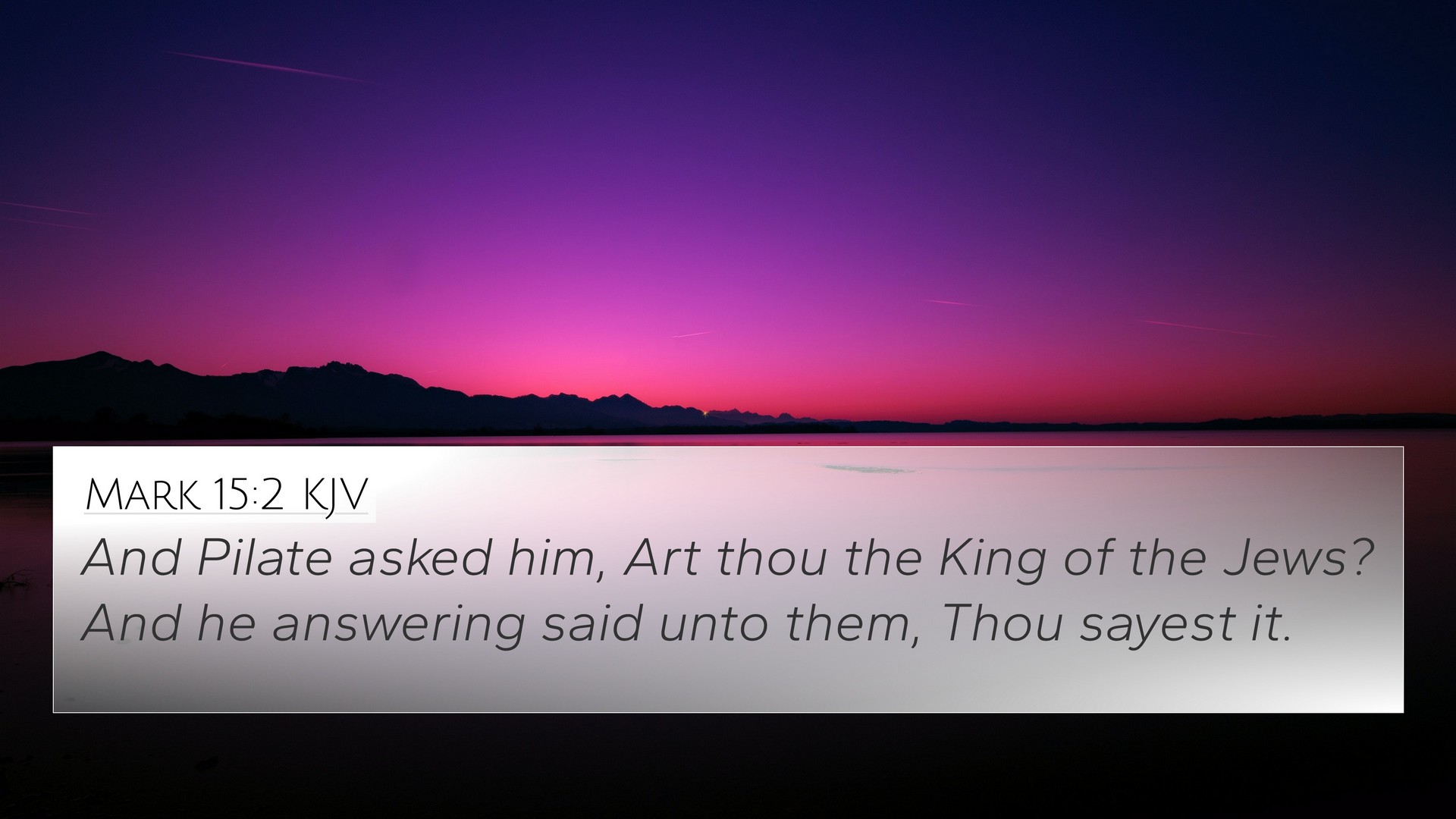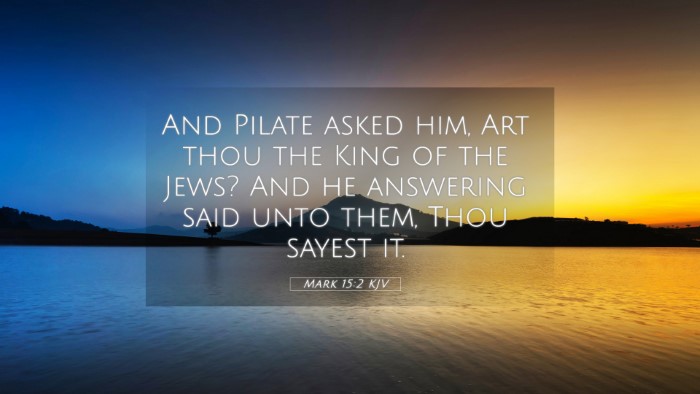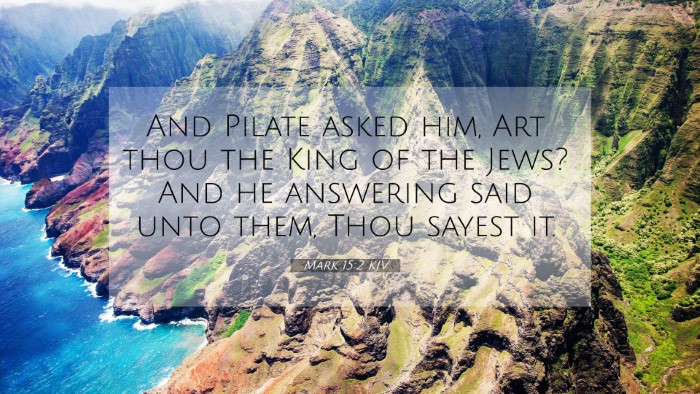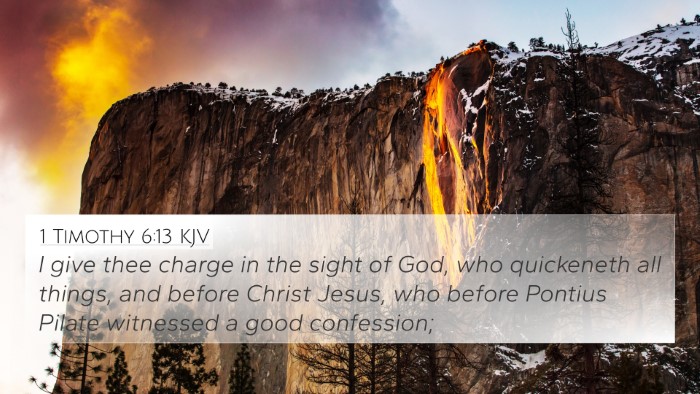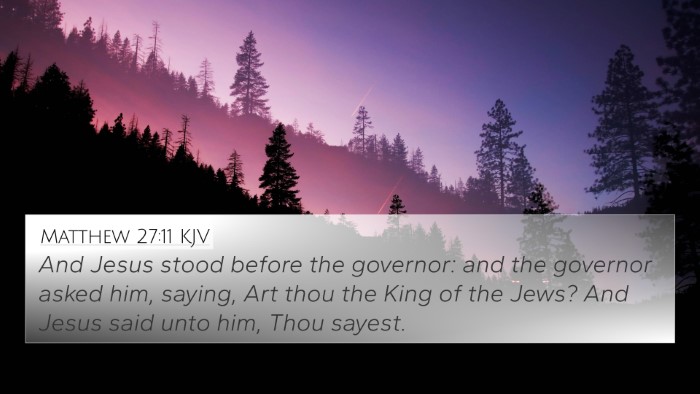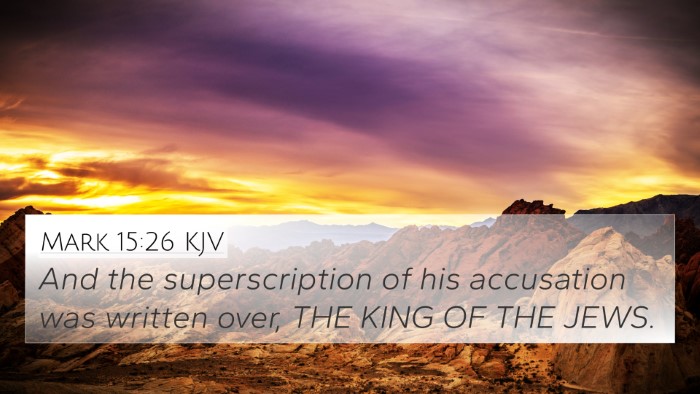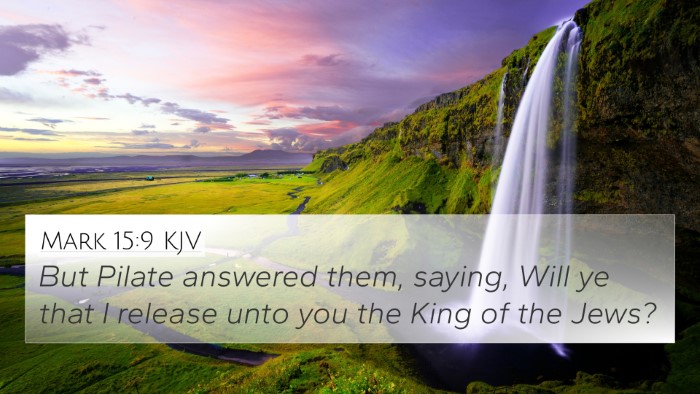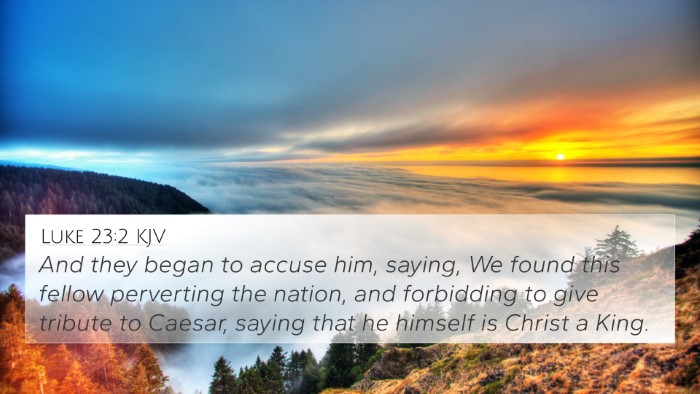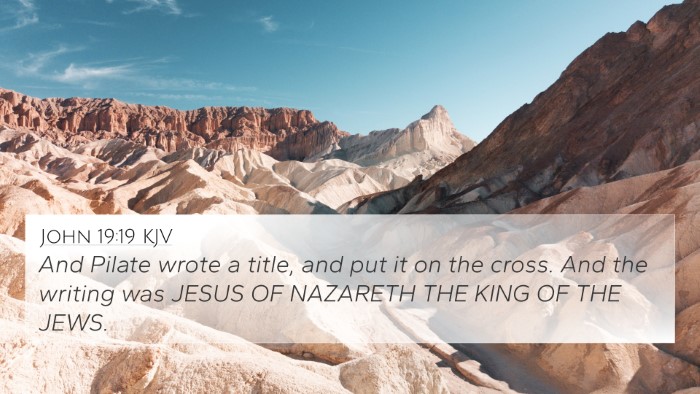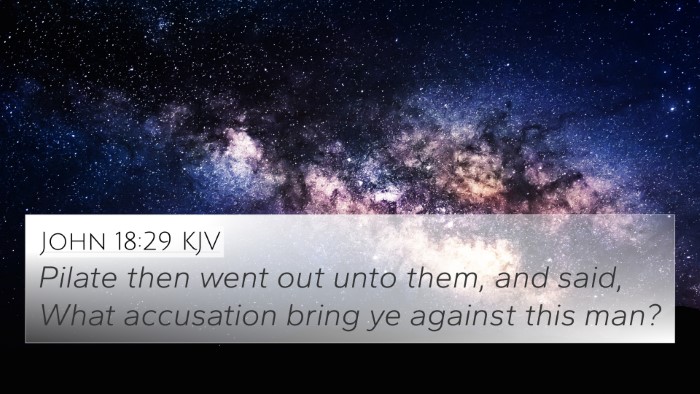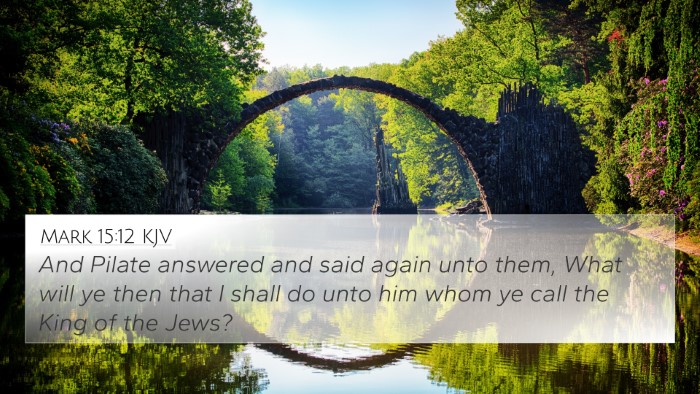Understanding Mark 15:2
Mark 15:2 states: "And Pilate asked him, 'Are you the King of the Jews?' And he answered him, 'You have said so.'" This verse marks a critical moment in the Passion narrative of Christ, where Jesus stands before Pontius Pilate, the Roman governor, facing accusations that would lead to His crucifixion.
Verse Significance
This verse is significant for several reasons:
- Confrontation of Power: Jesus is confronted by Pilate, representing Roman authority, highlighting the tension between worldly power and divine truth.
- Identity Revelation: Jesus' response reflects His acknowledgment of the identity as the King, yet in a manner that invites further contemplation.
- The Fulfillment of Prophecy: This moment serves as a fulfillment of the prophecies concerning the Messiah and His rejection.
Commentary Insights
Insights from various biblical scholars illuminate the depth of this verse:
Matthew Henry's Commentary
Matthew Henry notes that Pilate's question reveals the skepticism of worldly authorities regarding Jesus’ claim to kingship. Henry emphasizes that despite the mockery faced by Christ, His silence is strategic, allowing the truth to manifest without defense against slander.
Albert Barnes' Commentary
Albert Barnes focuses on the nature of Jesus' kingship. He suggests that Christ's kingship is not characterized by the earthly power Pilate understands, but rather by a spiritual realm. Barnes highlights how the question exposes the ignorance of Pilate about the true mission of Christ.
Adam Clarke's Commentary
Adam Clarke provides insight into the cultural context of the time, arguing that Pilate's question reflects a misunderstanding of Jewish expectations of a king. Clarke points out that Jesus' ambiguous response invites deeper reflection on the nature of His kingdom, which is not of this world.
Cross-References to Mark 15:2
This verse connects to numerous other scriptures that enhance understanding of its themes:
- John 18:36: "Jesus answered, 'My kingdom is not of this world...'" - This emphasizes the spiritual nature of Christ's authority.
- Luke 23:3: "And Pilate asked him, 'Are you the King of the Jews?' And he answered him, 'You have said so.'" - A parallel account enhancing the narrative.
- Isaiah 53:3: "He was despised and rejected by men..." - Prophetic background for understanding Jesus' rejection.
- Philippians 2:9-11: "Therefore God has highly exalted him..." - The ultimate recognition of Jesus' true kingship.
- Matthew 27:11: "Now Jesus stood before the governor..." - Another account correlating with Pilate's interaction.
- Revelation 19:16: "On his robe and on his thigh he has a name written, King of kings and Lord of lords." - The exaltation of Christ's kingship.
- Psalm 2:6: "As for me, I have set my King on Zion, my holy hill." - Old Testament prophecies regarding the Messiah's reign.
Thematic Connections
The connection between these scriptures often underscores themes of divine authority, the nature of Christ’s kingdom, and the fulfillment of prophecy. Understanding these connections can be integral to a deeper grasp of biblical narrative and theology.
Studying Mark 15:2 Through Cross-References
Using bible cross-reference tools can greatly enhance study practices:
- Consider employing a bible concordance to dive into related scripture.
- Engage with thematic bible verse connections for a broader understanding of spiritual principles.
- Utilize cross-reference bible study methodologies to identify links between the Old and New Testament.
Conclusion
This verse, while succinct, invites profound reflection on the identity of Christ and challenges readers to contemplate the nature of His kingdom. By examining inter-biblical dialogue through cross-referencing, one can uncover deeper theological insights and understand the overarching narrative of salvation history.
